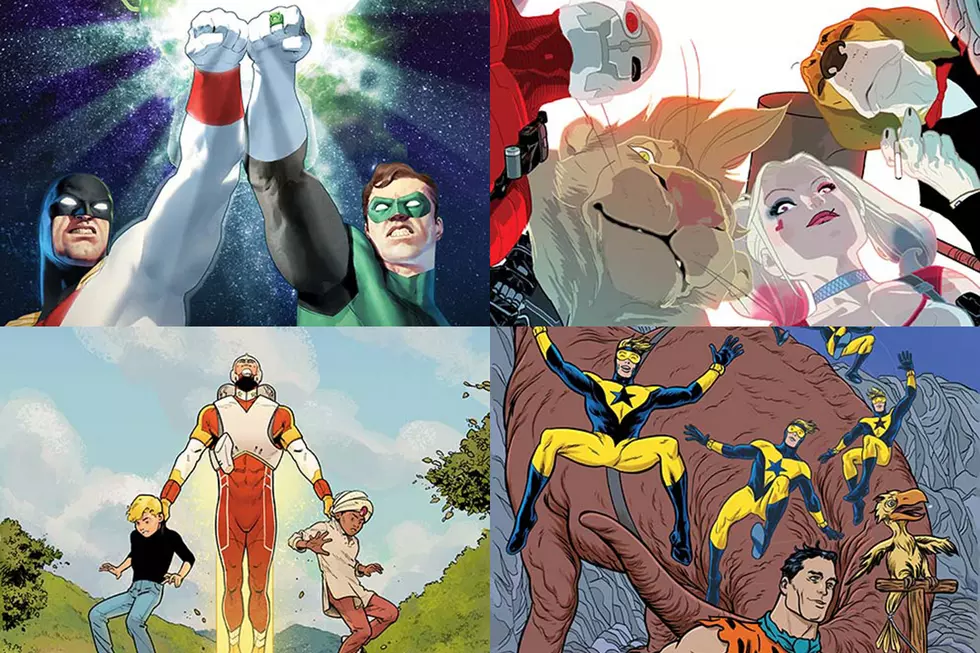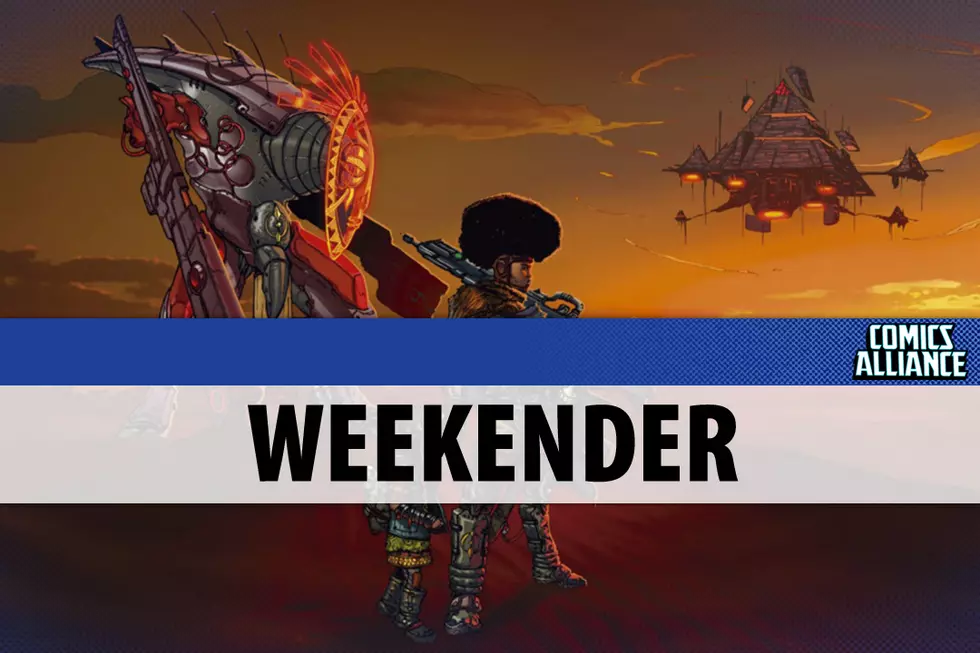
Pirated Scans of ‘Underground’ Boost Sales of the Indie Comic
We recently posted about a very interesting conversation between comics artist Steve Lieber and the 4chan message board, where the artist discovered scans of Underground, the spelunking indie comic he created with Jeff Parker. After Lieber initially showed up on the thread, the commenter who originally posted the scans offered to take them down, saying that he'd only wanted to give Lieber's work more exposure. Lieber not only declined to have the files removed, he went one step further; he posted the entirety of the comic -- all five issues -- for free online at Underground's website as well in a post subtitled "learning from 4chan."
"I just participated in a genuinely fascinating discussion, and I think it's old dog, new tricks time," said Lieber. But after the promotion on 4chan and deciding to give away Underground for free digitally, an amazing thing happened to Lieber: He made money.Since the exposure on 4chan, Lieber's sales through his studio's Etsy site have exploded, along with a massive traffic bump that dwarfed even a Boing Boing plug. While the Lieber-drawn chart above represents site traffic, not sales, Lieber told ComicsAlliance that "the sales spike, I think, would be a lot sharper, actually, but we don't have any way to track that as precisely... After the Boing Boing article ran, I sat down to do the free sketches for our Etsy buyers, and got them all done while eating a sandwich. After this, I'll be sketching for DAYS."
While the jury is still out on exactly how digital distribution will work best in the comics industry, and there are certainly ways that piracy hurts publishers and creators in the current market -- particularly when there aren't convenient, timely digital versions of many comics available for sale legally -- Lieber's experience does point to the power of digital to give comics exposure beyond their current, comparatively small print audience. It also points out some of the flaws in the fear-driven argument that "if you give everything away for free, you have ruined everything."
While making digital versions free online isn't going to mean a shower of gold coins for every comic or type of content, free distribution of the right material isn't a bogeyman; it's the best type of advertisement possible for a medium that badly needs to expand its customer base. It can help drive both sales and wider recognition of creators and their work, and it's also a model that webcomics has been working with for years. While it hasn't made every webcomic creator rich, it has made many of them a living, and helped them build reputations and audiences, two things indie creators are often specifically seeking. And as this incident has illustrated, it can also help drive sales back in the physical realm.
 As Lieber explained on Reddit, he hadn't previously pursued an online audience "because I don't care for the way my stuff reads on the web. I draw for reproduction on paper, with a visual vocabulary that's state of the art for 1956. It always reads a little off to me when I see it on the screen. But I have to say, it's been really illuminating to hear from a few thousand people who enthusiastically disagree."
As Lieber explained on Reddit, he hadn't previously pursued an online audience "because I don't care for the way my stuff reads on the web. I draw for reproduction on paper, with a visual vocabulary that's state of the art for 1956. It always reads a little off to me when I see it on the screen. But I have to say, it's been really illuminating to hear from a few thousand people who enthusiastically disagree."
There is, obviously, a difference between what the experience of a digital comic and a print comic, and the adaptation of the physical page to a screen -- especially one never intended to make that jump -- is sometimes less than ideal. But the "inferior experience" that concerned Lieber may also be part of the argument for why digital distribution will still drive print sales: there is value in the aesthetics and physicality of a print copy that a digital sample can't provide.
"That makes perfect sense to me," Lieber told ComicsAlliance. "More to the point, if they're gonna read it digitally anyhow, I might as well be providing digital files that look the way I want them to look rather than relying on someone's batch scanning job... The fact is, when you're drawing a spelunking thriller, you do it knowing you aren't going to make a damn dime. But that might just be direct market defeatism talking. It's just that the most comic shops in 2010 aren't in a position to get behind a project in an unfamiliar genre. Maybe it behooves us to try to make the work available any way we can, and just trust that when our audience finds it, they'll compensate us for our efforts."
More From ComicsAlliance




![The World’s Worst Superheroes Are In For A Bad Time In ‘Quantum And Woody Must Die’ #1 [Preview]](http://townsquare.media/site/622/files/2015/01/Quantum00.jpg?w=980&q=75)






